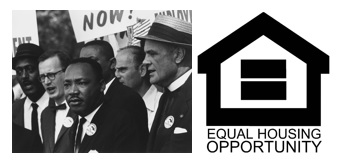Despite the Trump administration suspending the Affirmatively Furthering Fair Housing Rule that the Obama administration created to replace the Analysis of Impediments for municipalities, the City of Boston has agreed to continue to work on their Assessment of Fair Housing with us.

Affirmatively Furthering Fair Housing (AFFH) “Call to Action”
Since its inception in 1968 the federal Fair Housing Act has imposed a duty on state and local governments to take actions to Affirmatively Further Fair Housing (AFFH). In 2015 HUD issued a final AFFH rule that required cities like Boston, to have an effective planning approach for taking meaningful actions to overcome historic patterns of segregation, promote fair housing choice, and foster inclusive communities that are free from discrimination.
Boston has had a strong history of housing segregation and HUD provided us with the Assessment of Fair Housing tool, so cities like Boston can take meaningful actions to combat housing discrimination and stop the patterns of segregation from getting worse. It gave cities like Boston a chance to foster inclusive communities free from discriminatory barriers that restrict access to opportunity based on protected class characteristics. Boston was required to undertake an Analysis of Fair Housing and submit it to HUD for review by October 2017. The Trump administration suspended this requirement, but after advocacy from local groups and national partners, Boston agreed to finish their Assessment of Fair Housing.
HUD gave localities all over the country the opportunity to set in place an effective community process tool that allowed many residents, especially those who have oftentimes been left out of the conversation, to speak out and voice their concerns and desires for their neighborhoods. We worked with the city to ensure that they took the steps necessary to allow those voices to be heard. AFFH means taking meaningful actions that, taken together, address significant disparities in housing needs and in access to opportunity. It means replacing segregated living patterns with truly integrated and balanced living patterns, transforming communities of color and low income neighborhoods into areas of prosperity. It also means fostering and maintaining compliance with civil rights and fair housing laws.
Our Steering Committee is working to keep the city accountable. During the summer of 2017 we aided the city in pulling communities together and collecting testimony of peoples struggle. Now we are helping them finish their Assessment of Fair Housing report.
We need you to help us hold the City of Boston accountable.
Affirmatively Furthering Fair Housing Steering Committee;
Robert Terrell, Boston Housing Authority, formerly from the Fair Housing Center
Karen Chen, Chinese Progressive Association
Kathy Brown, Boston Tenant Coalition
Lincoln Larmond, Mattapan United
Kadineyse Ramize Peña, Boston Tenant Coalition
Sophia Hall, Lawyers Committee for Civil Rights
Nadine Cohen, Greater Boston Legal Services
Nilaya Montalvo, Homes for Families
Margaret Turner, Greater Boston Legal Services
David Harris, Charles Hamilton Houston Institute for Race and Justice
Barbara Chandler, Metro Housing Partnership Boston
Thong Phan, Viet Aid & Metropolitan Boston Housing Partnership
